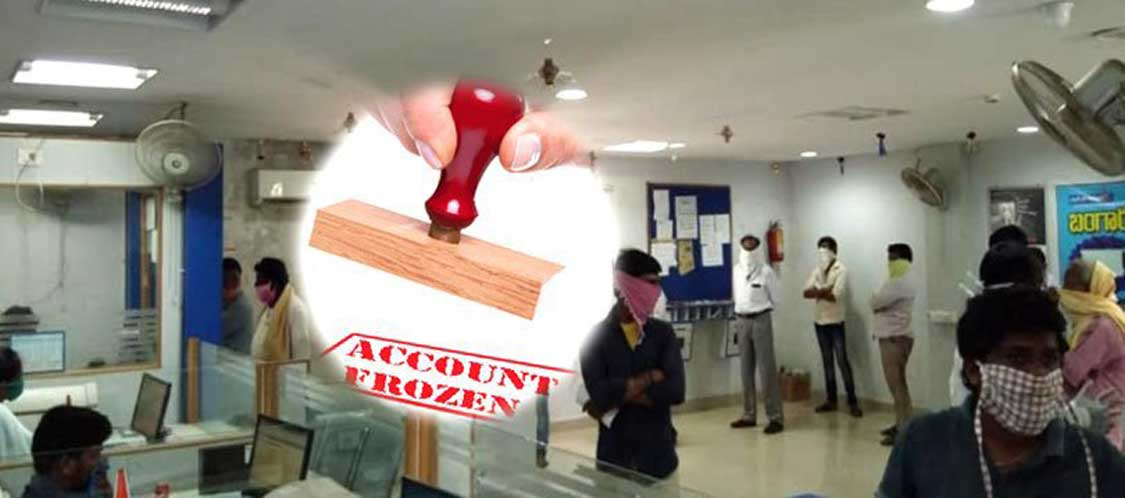Moneylife Foundation Impact: RBI Implements the Main Recommendations of MLF Memorandum on KYC

Even as the country is grappling with the second COVID wave, the RBI governor Shaktikanta Das today directed banks and other regulated financial entities not to impose any punitive restriction against customers for failure to update KYC till 31 December 2021. This announcement was part of the RBI Governor’s unscheduled speech to announce measures to tackle the ongoing Corona pandemic and addresses some of the pain points faced by bank customers.
RBI asked banks and other regulated entities, who need periodic KYC updates to ensure that “no punitive restriction on operations of customer account(s) shall be imposed till December 31, 2021 unless warranted due to any other reason or under instructions of any regulator/enforcement agency/court of law, etc. Account holders are requested to update their KYC during this period".
The RBI has also decided to extend the scope of video KYC (know-your-customer) or V-CIP (video-based customer identification process) for new categories of customers such as proprietorship firms, authorised signatories and beneficial owners of legal entities.
The RBI has also permitted enabling the use of KYC identifier of Centralised KYC Registry (CKYCR) for V-CIP and submission of electronic documents (including identity documents issued through DigiLocker) as identify proof. ) It has called for the introduction of more customer-friendly options, including the use of digital channels for the purpose of periodic updation of KYC details of customers This will benefit millions of bank customers who already have CKYC by CERSAI while opening brokerage and depository accounts for stock market transactions.
The decision today addresses several issues raised by Moneylife Foundation in a memorandum submitted to the RBI Governor on 12th April along with detailed cases studies. See the detailed memorandum here: https://www.mlfoundation.in/memorandum/hardship-and-financial-death-inflicted-on-depositors-due-to-arbitrary-freezing-of-bank-accounts/130.html
The Governor’s announcements are welcome and address immediate concerns of depositors whose accounts were being indiscriminately frozen or who were being summoned to bank branches in person to update KYC. SBI had set the ball rolling last week by asking its offices not to ask people to visit the branch of KYC updation.
Moneylife Foundation’s memorandum, followed up by a online petition (https://www.change.org/DontFreezeMySavings) which had garnered 11,224 signatures had made the following demands that were accepted. But many larger issues have yet to be answered. First, why absolutely risk-free accounts are subject to repeated KYC updation; second, whether banks have the right to freeze any saver’s money held in trust when there is no financial misdemeanour or crime; third whether such a draconian power to inflict financial death can be delegated to branch managers without any oversight; fourth whether risk classification by banks is properly done and if yes, why are routine accounts and pension accounts in the high-risk category requiring frequent KYC updation; fifth, when accounts are frozen due to mistake by banks there is no compensation or apology to customers for the cascading impact and trauma caused by the action, which ought to be part of the consumer charter; sixth, the RBI has still to issue Standard Operating Procedures to banks for when, if at all, it can block access to a depositor’s own money.
Unfortunately, the announcements do not have any answers for the hardship faced by the economically underprivileged due to freezing of Jan Dhan accounts. The RBI announced that limited KYC accounts opened on the basis of Aadhaar e-KYC authentication in non-face-to-face mode can be converted to fully KYC-compliant accounts. Moneylife had written on 29th April how freezing of Jandhan accounts were depriving people of key state benefits during the pandemic and repeated pleas on behalf of these account holders had fallen on deaf ears even as their hardship had increased in the pandemic : https://www.moneylife.in/article/how-kyc-freeze-of-the-jan-dhan-account-holders-is-destroying-the-lives-of-the-poor/63692.html
The key points that RBI has accepted from our 20-page memorandum.
1. Indiscriminate Freezing of Accounts: Denying access to their own money is an extreme punishment which is imposed with impunity by bank officers, often without adequate notice, merely for a delay in compliance with KYC re-submission. This is often done without adequate notice. The RBI has accepted his and disallowed freezing of accounts but only until the pendemic.
We said banks should be allowed to freeze accounts only in case of financial crime and that, too, on requests from revenue authorities, Central investigation agencies or the economic offences wing (EOW) of the police, ideally ratified by courts. This point has been actioned on by the RBI.
2. Technology and Centralised KYC: Banks must use latest available technologies, like digital ID or video-based customer identification process (V-CIP), to establish KYC.
A centralised KYC already has all the facilities in place for smooth and easy online updation. But, instead of using it, banks have been forcing customers to visit the home branch with physical documents, even in the middle of the COVID pandemic. RBI has accepted this recommendation and issued detailed directions.

